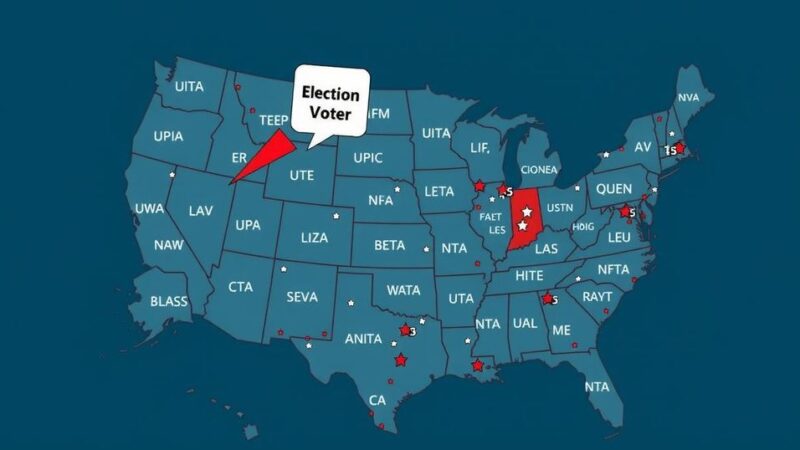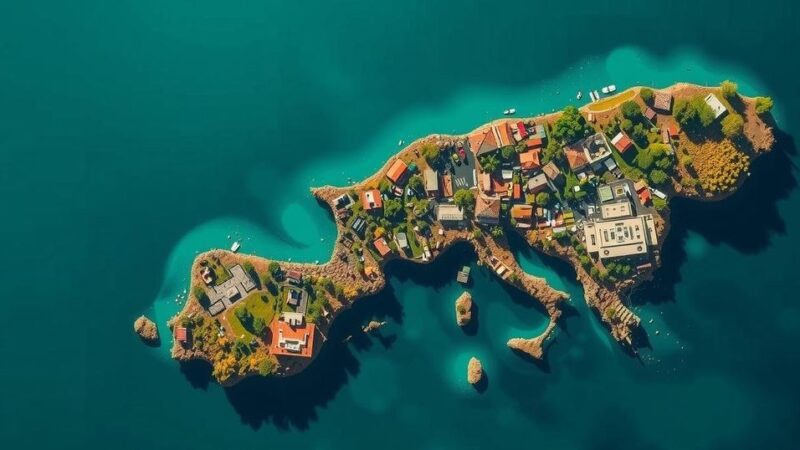The upcoming Tunisian presidential election on October 6 features President Kais Saied and two challengers: Zouhair Magzhaoui and imprisoned Ayachi Zammel. Critics argue that the election process has been rigged in favor of Saied, calling into question the democratic integrity of the vote. The disqualification of numerous opposition figures by the Independent High Authority for Elections has intensified scrutiny of Saied’s governance since his power consolidation in 2021. Public disillusionment is reflected in low electoral participation, raising concerns about the future of Tunisia’s democracy.
On October 6, Tunisians will cast their votes in a highly anticipated presidential election, where incumbent President Kais Saied faces significant criticism regarding the electoral process. Only two candidates have been approved to run against him: Zouhair Magzhaoui, perceived as a symbolic candidate aligned with Saied, and Ayachi Zammel, who is currently imprisoned amid allegations of falsifying campaign documents. Critics argue that the election has been manipulated to ensure Saied’s continuation in power, raising alarms about the future of Tunisian democracy. The backdrop of this election is steeped in controversy. Saied, who assumed power in July 2021, is accused of undermining democratic institutions, including the Independent High Authority for Elections (ISIE), which barred many opposition candidates from participating. Instead of a robust electoral competition, the ISIE approved only three candidates—Saied, Magzhaoui, and Zammel—after declaring the majority ineligible under dubious pretenses. Furthermore, a recent law has stripped judicial bodies of electoral oversight, solidifying Saied’s control over the political landscape. Civil unrest has re-emerged as citizens protest against the political suppression and demand fair elections. The dissenting voices, however, are often muted by a range of laws that limit free speech and expression, contributing to a heavily biased media environment that favors the president. Many citizens, disillusioned with traditional politics, have also chosen to abstain from voting, as reflected in the alarmingly low turnout during the 2022 parliamentary elections. The incumbent, President Kais Saied, capitalized on his previous electoral success, promising to combat corruption and elevate social justice, yet has since adopted increasingly authoritarian policies. His challengers provide stark contrasts: Ayachi Zammel, despite being imprisoned, has made a name for himself as a liberal voice within unconventional circumstances, while Zouhair Magzhaoui has become emblematic of the existing regime’s support for Saied’s constitutional reforms. In summary, this election is pivotal for Tunisia, as the outcomes will determine not only the future of Kais Saied but also the viability of democratic processes in a nation still navigating its post-revolution identity and aspirations for reform.
The upcoming presidential election in Tunisia is set against a backdrop of political unrest and allegations of electoral manipulation. President Kais Saied, in power since a power grab in July 2021, faces a significant legitimacy crisis as he contends with claims of undermining democracy through purges and a restricted electoral process. The Independent High Authority for Elections, perceived to be under Saied’s influence, has disqualified numerous candidates, raising questions about the integrity of the election scheduled for October 6. The imprisoned candidate, Ayachi Zammel, has also been a pivotal figure in this election, casting a shadow on conventional political competition. Public sentiment ranges from disillusionment to frustration, with many citizens feeling alienated from the political system. This election represents a crucial juncture in Tunisia’s efforts to establish a functional democracy and uphold civil liberties.
The Tunisian presidential election scheduled for October 6 poses critical implications for the nation’s democratic future. With the incumbent, Kais Saied, facing limited opposition amidst claims of rigging and political repression, the integrity of the electoral process is under scrutiny. The controversial candidacies of Magzhaoui and Zammel highlight the uneven playing field that has emerged. Citizens’ apathy towards electoral participation signals a broader discontent with the political status quo. The outcomes of this election will be instrumental in shaping Tunisia’s political trajectory and the preservation of democratic values.
Original Source: www.aljazeera.com






